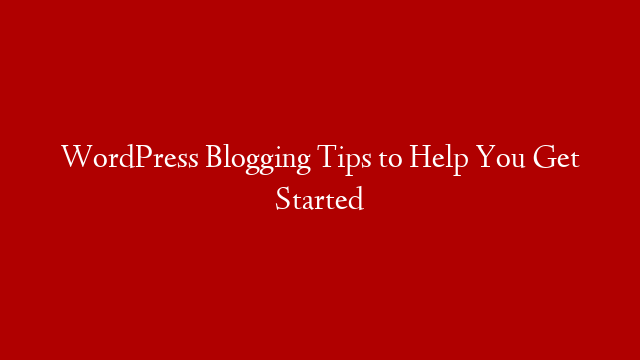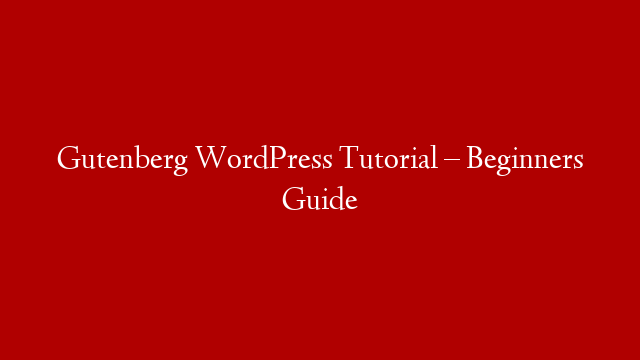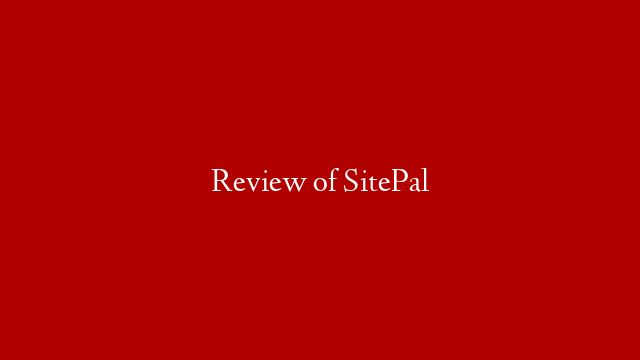If you want to start a blog, WordPress is probably the easiest and most user friendly application you can use. There are even simpler options -such as using a free online blogging service such as Blogger.com, but then you really don’t have much control over your own site.
With WordPress, you get the best of both worlds -an easy to understand platform and unlimited features that enable you to grow your blog and add bells and whistles as you learn.
WordPress.org vs WordPress.com
First, I should point out that there are two WordPresses. They are run by the same company, but WordPress.com is a service that hosts your blog for you -like Blogger, Tumblr and other third party sites. These are often called Web 2.0 sites. There’s nothing wrong with creating your blog this way, but it does limit you in some ways.
When you use WordPress.com or any Web 2.0 site, you don’t own the blog. You are simply renting space on it. This means that the host can delete your blog at any time. This happens if you are deemed in violation of any TOS (terms of service). It’s surprisingly easy to do this, even without meaning to.
For example, WordPress.com does not allow you to make your blog commercial in any way. So if you want to start a business or even make a few extra dollars every month, this is not the way to go.
Another reason why WordPress.com and other such sites are not ideal is that you will have a harder time with SEO and generating traffic than if you owned the blog. That’s because most of the “link juice” generated by your article will go to the host rather than your specific site.
That’s why WordPress.org is what I’m going to focus on here. This is when you buy a domain, get hosting and start your own blog.
Choosing a Domain and Web Host
Your domain is your URL -the address of your website or blog. If you haven’t chosen one yet, you will have to do this first. If you don’t have web hosting either, you will also need this. You can combine these if you want. Many web hosting companies offer you a free domain when you sign up for hosting.
When choosing a web hosting company, it’s good to pick one that has a lot of experience with WordPress. If you really want to be sure of this, you might go with WP Engine, a company that specializes in WordPress. They are, however, a little more expensive than most web hosts.
If you want to save money, you can still find a good web host that can support your WordPress site. Bluehost, for example, is highly recommended for this. They are even recommended by WordPress itself.
One suggestion I will make here is that, whatever web host you choose, try to pick a plan that gives you unlimited domains/websites. Sometimes one host will offer several different plans. The difference in price is usually only a few dollars per month.
The point is that creating WordPress blogs can be addictive! You will probably not want to stop with one. So you may as well have a hosting plan that lets you create as many as you want.
When choosing a domain, try to keep it short and simple. If you want your blog to rank well in the search engines, choose some good keywords in the title. These are words that people will actually search for when looking for information.
If your domain is something like Bobsblog.com or Marysblog.com, you will have a personalized name but not one that is likely to help you with SEO (search engine optimization). This is of particular importance if you intend to sell something. If you only want a blog to share with your friends, family members, co-workers, etc. then it’s not important.
How to Install WordPress
Installing WordPress is quite easy with most major web hosting companies. You usually use a script installer such as Fantastico or Softaculous (your web host probably has one of these -look on your control panel). You can then install WordPress in a few clicks.
I don’t want to waste too much space here describing the steps of installing WordPress, because you can find this at your web hosting company. There are also numerous articles and videos on this topic.
What Should You Blog About?
This doesn’t seem like it should be a problem, but many people experience “blogger’s block” after writing a post or two. I’m assuming that you’ve already chosen your topic. After all, if you can’t even think of a topic, it’s not really a good time to start a blog yet!
But even when you have a topic that interests you, it can be challenging to think of actual posts to write. For this, you may need to do some research for inspiration. Here are some ideas.
- Set Google Alerts -You can get emails from Google that will deliver news to your inbox based on some keywords you choose.
- Amazon -Check out what books are popular. Also check out their magazine section!
- Other Blogs -check out Google Blogs and see what others in your niche are writing about. You don’t want to copy them, but you may get ideas you can put your own spin on.
- Offline Books and Magazines -Go to the library, bookstore and magazine section at Barnes & Noble (or wherever magazines are sold). Read newspapers. These are all great sources for ideas.
- Consistency is the Key to Success
If you have a blog, you have to write blog posts! This is really the most important “secret” to having a successful blog, believe it or not. You hear a lot today about “quality content,” which is, of course, important.
If you are populating your blog with auto-generated or spun content (if you don’t know what that is, don’t worry about it -you’re better off!) you won’t get very far. The search engines are quick to recognize this as low quality content. However, you do have to generate posts on a regular basis.
Forgetting about the search engines for a moment, when a visitor sees that a blog hasn’t been updated in months, he or she is likely to conclude that it isn’t very active or relevant. You probably do the same when you are looking up new sites online.
Search engines also love blogs that are frequently updated. It also gives you more content for them to index. Let’s say a few words about SEO, as long as we’re on that topic.
The Vast Universe of WordPress Plugins
Once you get more familiar with WordPress, you may want to start looking into more advanced features. This often means adding plugins. These are tools that you upload to your WordPress site to perform a variety of functions.
Plugins can be used for security, SEO, to create forums or membership sites, to place contact forms on your site or hundreds of other things. Plugins give you the ability to accomplish many tasks that would otherwise require advanced knowledge of coding.
There are so many plugins for WordPress it would be impossible to keep up with them all. At first, you may not think you need any plugins -and this is true. Yet it’s so easy to use them that you may as well get your feet wet and install some basic ones.
You can access the plugins settings from your WordPress dashboard.
- Akismet -This anti-spam plugin is already included when you install WordPress, but you have to get an API key to activate it. There are instructions on how to do this.
- Google XML Sitemaps -This makes it easy for Google and other search engines to index your posts and pages.
- W3 Total Cache -This is a great plugin to help your site load faster and operate more efficiently. It does this by caching posts, pages, databases, scripts and other elements that take up space.
- BulletProof Security -Helps keep your site safe from attacks. This is important, as hackers often target WordPress sites.
- WordPress SEO by Yoast -Makes it much easier to optimize your site for the search engines.
The above is a very abbreviated list of what you can do with plugins. If you have any particular needs or ideas for special features for your blog, chances are there’s a plugin that can help you achieve this.
WordPress: The Perfect Place For Your Blog to Evolve
What makes WordPress so amazing for bloggers is that it can help you at any stage of your blogging career. For rank beginners, it makes it easy to set up a barebones blog. Advanced users can play with all the configurations and plugins.
Yet WordPress is still just a tool. It’s up to you to come up with awesome content so people have a reason to visit your blog!



